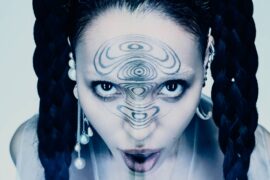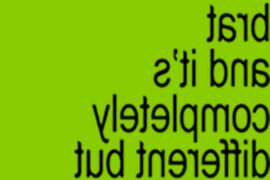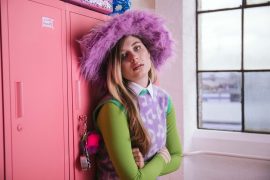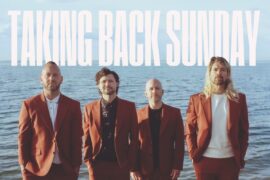Atwood Magazine’s writers discuss Lana Del Rey’s epic ninth album ‘Did you know that there’s a tunnel under Ocean Blvd,’ from her vulnerable and descriptive storytelling to the variety of her songwriting and musical production.
featured here are Atwood writers Mariel Fechik, Josh Weiner, Lauren Turner, and Sam Franzini.
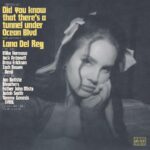
— —
To start, what is your relationship with Lana Del Rey’s music?
Josh Weiner: I’m a casual fan. I wouldn’t say I’ve listened to all nine of her albums, but I have done a couple of them and appreciated some of her best-known songs, including “Summertime Sadness” and “Doin’ Time.” The music of hers I have encountered has made a positive impression on me, and that left me quite open-minded to listening and commenting on her latest release.
Mariel Fechik: I discovered her as a high schooler when she released her debut, listened to “Off to the Races” about a billion times, and promptly stopped caring about her until Norman Fucking Rockwell! was released. Now, despite my judgment of many of her recent antics, I find myself eagerly awaiting her new records and simply being fascinated by her.
Lauren Turner: I have been a fan of Lana Del Rey for a long time and she is definitely one of my favorite artists. When I was in high school, I fell head over heels for her albums Born To Die and Paradise. Her writing and storytelling have always captivated me.
Sam Franzini: I’m definitely on the more casual side. I’ve actually never heard Born To Die or Ultraviolence, two of her most iconic records, I’ve been told, but I’ve listened to everything past Honeymoon. I’m not a superfan that will defend everything she does, but she definitely has some hits in her catalog that puts her in my top 20 artists, for sure.
What are your immediate reactions to Did you know that there’s a tunnel under Ocean Blvd?

Josh Weiner: “Dang it, I wish I could hear this album better while I’m out riding my bike, but it’s too windy!” On the real, though, when I first listened to this album, I felt like this was another well-crafted record in which Lana Del Rey puts that utterly hypnotic voice of hers to excellent use time and again.
Sam Franzini: I’ve had a wide array of reactions to new Lana albums. Norman Fucking Rockwell! was a grower, Lust For Life fell lower in my ratings over time, and I was immediately bored with Blue Banisters. But Ocean Blvd immediately clicked. I love the folkier side to Lana and how she really takes her time with some of these new songs, and placed among darker, moodier works that incorporate a lot of production choices like “A&W” or “Peppers,” it really held my attention.
Mariel Fechik: I listened to the album in one sitting, and while I don’t think I was necessarily surprised by the sound, as her last several albums have featured that hazy folk, I do think I was struck by the density of the record and by her earnestness. I think that the Lana we’ve come to know over the years has been slowly eroding, revealing someone who is more willing to share her real self.
Lauren Turner: I’m always excited to listen to a new Lana album and see where her storytelling takes her next. I think she delivered with Did You Know That There’s a Tunnel Under Ocean Blvd. Honestly, with this album, I find myself liking different songs or noticing something different every time I listen to it, and because of that, it is super intriguing to me.
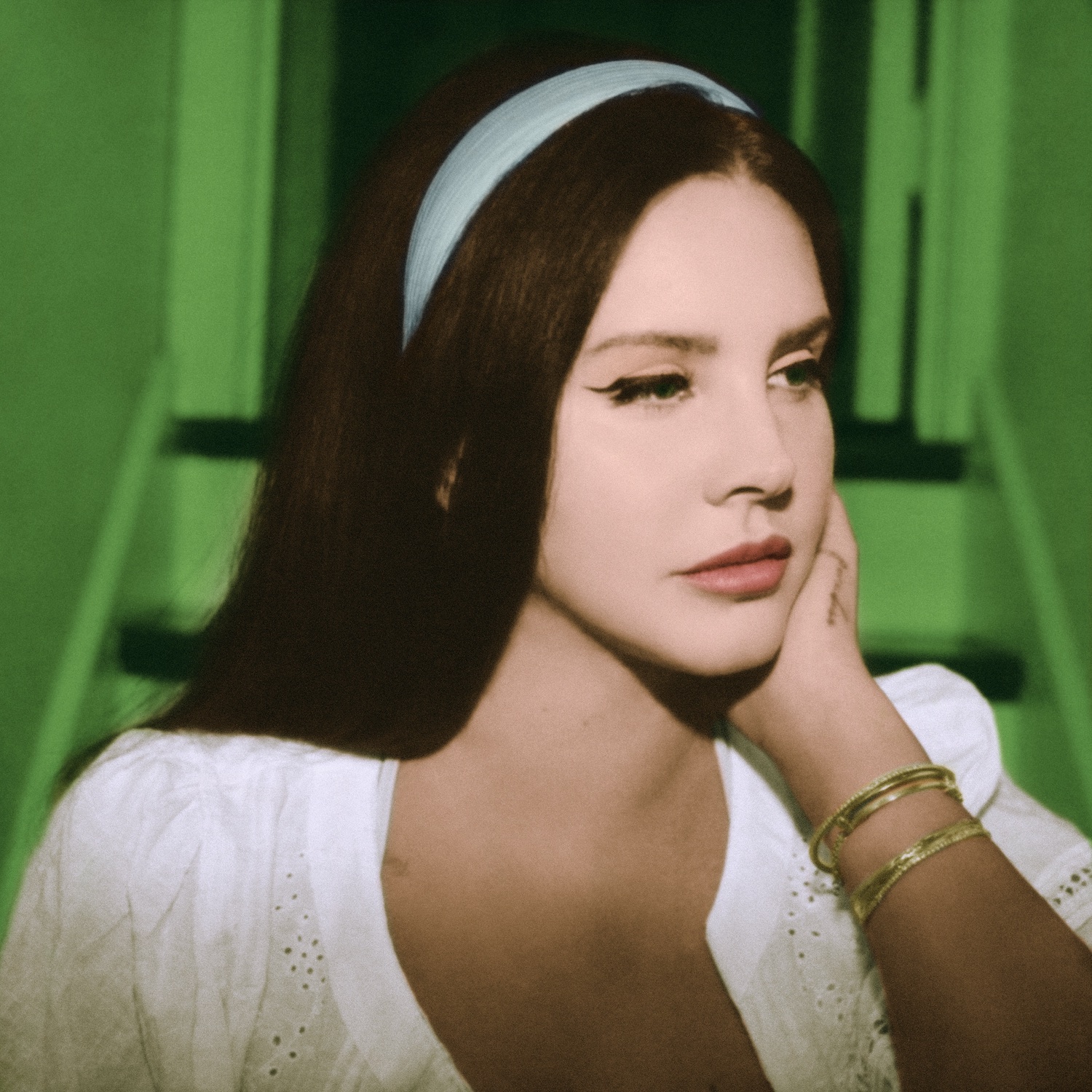
Which songs stand out for you, and why?

Sam Franzini: “The Grants” is definitely one of her most beautiful songs. The themes of memory and death are introduced in a lovely way here, and the ending is just great. Of course, “A&W” is an immediate smack in the face, and it’s hard to get tired of it. And the bizarre “Peppers” was turning itself around in my brain for days after I first listened to it.
Lauren Turner: “Did you know that there’s a tunnel under Ocean Blvd” is actually one of my favorites on this album. I love how beautiful the lyrics are. The idea of not forgetting someone and the beauty of them, just like the tunnel, is stunning to me. I also really loved “Let The Light In” and “Paris, Texas.” These songs reminded me a lot of some of her older music that made me fall in love with her as an artist. I also have to mention “Taco Truck x VB.” “Venice Bitch” is one of my favorite Lana songs so to see a new side of it in this album was cool.
Josh Weiner: I’ll go with “A&W,” for reasons described below, plus the NSFW’ness of it all really helped it stand out for me.
Mariel Fechik: “The Grants” made me cry the first time I heard it, and “Candy Necklace” is incredibly cool. But I think “Paris, Texas” was what made me fall in love with the record. It’s so haunting and strange, and it reminds me of the late-aughts indie music that was a strange mix of twee and darkness (something like The Pierce’s “Secret,” which eventually became the theme song for Pretty Little Liars.)
What lyrics from Ocean Blvd make you specifically feel seen and/or called you out?

Josh Weiner: I liked the line, “Jimmy, Jimmy, cocoa puff, Jimmy, Jimmy ride. Jimmy, Jimmy, cocoa puff, Jimmy, get me high.” Apparently, it’s a reference to a song from way back in 1959, although I personally know that line best from its appearance on Nelly’s “Country Grammar,” from slightly less way back in 2000. Anyways, it was nice to hear it gain new life once again on “A&W,” on which Lana Del Rey uses it as another successful love-is-the-drug metaphor.
Lauren Turner: There were three moments that really struck me when listening to this album. The first one was in “The Grants.” She sings, “My pastor told me, ‘When you leave, all you take uh-huh, is your memories.’ And I’m gonna take mine of you with me.” I thought that was absolutely beautiful, to have someone so important to you that you imagine taking the memories you have with them with you after death. The other line was in “Fingertips.” She sings, “Let it crash over me like the waves in the sea/ Call me ‘Aphrodite’ as they bow down to me/ Sunbather, moon chaser, queen of empathy/ I give myself two seconds to breathe/ And go back to being a serene queen/ I just needed two seconds to be me.” Another beautiful group of lyrics with such a deep meaning. In “Kintsugi,” she sings, “But I can’t say I run when things get hard/ It’s just that I don’t trust myself with my heart/ But I’ve had to let it break a little more/ ‘Cause they say that’s what it’s for/ That’s how the light shines in.” I loved this imagery of light coming through after hard times.
Mariel Fechik: This album is about Lana and Lana alone. I don’t think we’re meant to feel seen or called out by any of this, because it’s so diaristic and insular. But I do agree with Lauren; the lyrics on “The Grants” are beautiful and make me think of people I’ve lost.
So you say there’s a chance for us?
Should I do a dance for once?
You’re a family man, but, but
Do you think about Heaven? Oh-oh
Do you think about me?
My pastor told me
“When you leave, all you take
Uh-huh, is your memories”
And I’m gonna take mine of you with me
I’m gonna take mine of you with me
So many mountains too high to climb
So many rivers, so long, but I’m
Doin’ the hard stuff, I’m doin’ my time
I’m doin’ it for us, for our family line
Lana Del Rey had a lot of collaborations on this album. Which one stuck out to you the most, and why?

Josh Weiner: In the wake of his Album of the Year victory at last year’s Grammys, I’ve taken a liking to Jon Batiste, and in turn was impressed by his contribution to the song “Candy Necklace.” I’ll go with that one as my favorite collaboration here.
Sam Franzini: Jack Antonoff joining the song where his love story is told was really touching. I really liked the touch of personality he adds to it, and it feels like the chemistry he and Lana have in the studio is just so present.
Lauren Turner: I love Bleachers, so “Margaret” stuck out to me the most. Lana and Jack Antonoff’s voices blend gorgeously together on this track.
Mariel Fechik: The best one is unquestionably “Let The Light In” with Father John Misty. Leaning toward his style, they sound so excellent together. It’s a classic 70s-style love song and it’s beautiful, with the saccharine strings and the melodic bends on the chorus. Jon Batiste’s contributions are also lovely, though not quite as heavy on the actual collaborative aspect.
Word to all my friends
But they’re red flags, they’re white knights
They’re black eyes and they’re blue lies
If you’re asking yourself, “How do you know?”
Then that’s your answer, the answer is no
You gotta run, gotta run, run, run, run like your head’s on fire
Run away like your head is on fire
‘Cause, baby, if your love is in trouble
Baby, if your love is in trouble
Baby, if your love is in trouble
When you know, you know
When you know, you know
It kinda makes me laugh, runnin’ down that path
When you’re good, it’s gold
‘Cause when you know, you know
And when you’re old, you’re old
Like Hollywood in me, the diamond on your ring
The soul that you bring to the table
One that makes me sing
In a minor key
We all know Lana Del Rey is a great storyteller; which storyline did you like the most on this album?

Sam Franzini: Her uncle’s suicide in Rocky Mountain National Park, the void she felt because of it, and connecting it to her own suicide attempt, was really heartbreaking. “Fingertips,” especially, which details her family trauma, mental health struggles, and a brief but deep history of her life, brings everything together in a fascinating way.
Lauren Turner: There were a lot of storylines I liked on this album, but “The Grants” is my favorite I think. I like how she mentions the memories she has of people, such as her grandmother’s last smile, and how she connects it to the overall message of life’s moments being so valuable and precious.
Josh Weiner: Once again, I’ll side with “A&W” in this one. At seven minutes long, this track is able to document so many of her personal woes at once – loveless sex, alienation from her mother, and so on.
Mariel: “Grandfather…” takes the cake on this one. It’s beautiful, and also somewhat….problematic. “I’m folk, I’m jazz, I’m blue, I’m green…Regrettably, also a white woman / But I have good intentions, even if I’m one of the last ones.” Need I say more? But I also love the ideas of signs and lineage that she touches on.
I haven’t done a cartwheel since I was nine
I haven’t seen my mother in a long, long time
I mean, look at me, look at the length of my hair
My face, the shape of my body
Do you really think I give a damn what I do
After years of just hearing them talking?
I say I live in Rosemead
Really, I’m at the Ramada
It doesn’t really matter
Doesn’t really, really matter
Call him up, come into my bedroom
Ended up, we f* on the hotel floor
It’s not about havin’ someone to love me anymore
This is the experience of bein’ an American whore
Lana Del Rey’s music mentions specific places, people and even other songs. Do you like when an artist uses references and specificity?

Lauren Turner: I do like when an artist uses specific references. It helps with imagining what that artist is thinking about. For example, “Did you know that there’s a tunnel under Ocean Blvd” really lets you picture the tunnel’s mosaic ceilings, painted tiles and the girl singing “Hotel California.” It sets up a whole scene filled with details to let you dive into an artist’s world.
Josh Weiner: I mean, I guess I do (random example: all the places where B.O.B. raps about how life can be “So Good”), but I’ll have to do more detective work to determine which particular references and name-drops on Did You Know That There’s a Tunnel Under Ocean Blvd are my favorites.
Mariel Fechik: She has always done this, and I think it’s one of the things that’s always made her compelling. In the past, they’ve seemed more general, simply functioning as recognizable touchstones that listeners can point to. But here, they seem like a map of her real life.
Much has been said about the album’s length; at 77 minutes, it’s Del Rey’s longest yet. Do you think a runtime like this dilutes the album’s ideas? What do you make of the two interludes as well?

Josh Weiner: 77 minutes ain’t so bad. Take Lana Del Rey’s fellow Lollapalooza 2023 headliner, Kendrick Lamar, for instance. Everyone praised To Pimp a Butterfly for being full of big ideas; rarely did anyone say “78 minutes’ worth of ideas is too much!” Likewise, Did You Know That There’s a Tunnel Under Ocean Blvd seems to have won over critics just fine – I don’t see many people criticizing its length as too excessive or anything. What do I make of the interludes? Well, they’re quite dramatic, for sure, but they do make their mark and come across as decently cinematic, which I appreciate.
Lauren Turner: I didn’t mind the length of the album either. If anything, I think it gives fans a lot to think about and digest, which a lot of music listeners love to do and look for when listening to new albums. As for the interludes, I think it is very Lana. It adds to the storytelling and dives into the creative and deeper meaning of the album.
Mariel Fechik: I have been missing the days of long albums, so no, I love the length. As for the interludes, I am most thrown by the “Judah Smith Interlude.” It creeps me out immensely, and I’m not sure what she was trying to convey by including it.
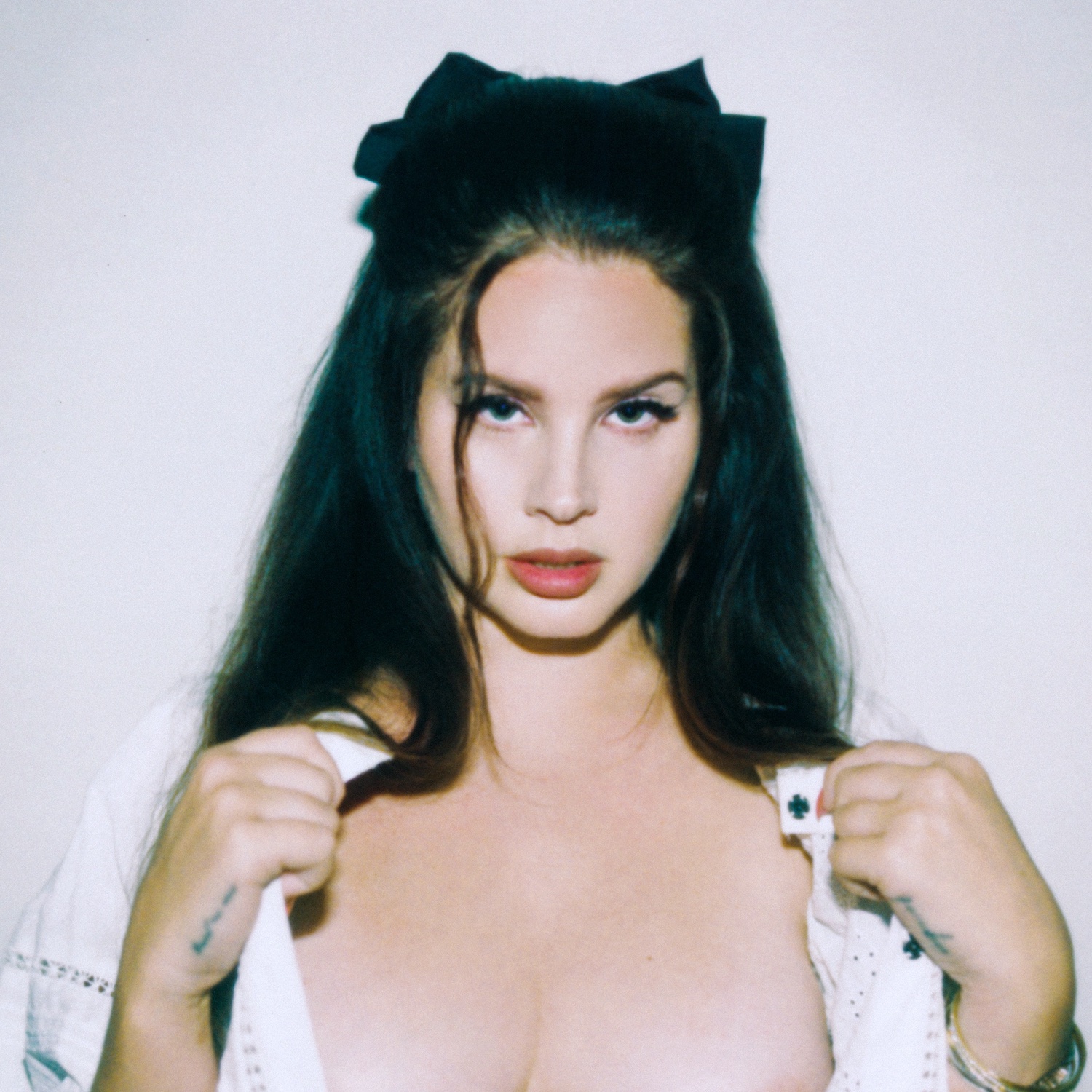
What are your ultimate takeaways from this album, and what would you say is Lana Del Rey’s message to folks right now in 2023?

Sam Franzini: I honestly think this is the record where she feels most true to herself. The juxtaposition between so many styles and mixed ideas lets us know that she’s writing and singing about whatever she really wants to. Yes, it feels like there’s a lot of different ways she went on this one, but any peek into her mind is one I personally enjoy.
Mariel Fechik: The reason I am so fascinated by Lana Del Rey is that we should be sick of her by now. For years, the New Yorker has put on her languid, coked-out, California persona and moaned into a microphone, and we eat it up. There is something compelling about this in itself — why do we continue to care?
For me, at least, the reason lies in her continual rejection of pop conventions, releasing albums that sound increasingly like demo tapes than mainstream pop records, yet somehow managing to make them sound complete. She also has entirely eschewed typical pop production, which is what makes me respect her. When other mainstream pop artists have attempted folk, they still sound glossy and overproduced — which is, you know, the entire opposite of what folk music is. Ocean Blvd might be the pinnacle of this; in between murmured vocal tracks and cloudy piano lines, there is something like real depth here. On tracks like “A&W,” “Peppers,” and “Taco Truck x VB,” she is self-referential and sly, both shouting out her haters and being wittily self-deprecating. Alternately, on “The Grants,” “Fingertips,” and “Grandfather please stand on the shoulders of my father while he’s deep-sea fishing,” she is vulnerable and personally revealing in ways she hasn’t been before. I don’t think she necessarily has a message, other than that she’s letting her music speak for itself.
Lauren Turner: Kind of touching upon what everyone else is saying, she truly is writing about whatever she wants in this album. To me, it seems like it is a release of emotions, storylines and things she has gone through that she just wants to get out into the world. It’s almost like she is saying, “Say what you need to say, let it all out there. Life is too short.”
Josh Weiner: I don’t know how to go in as much depth and detail as my dear co-writers have done with this one, but I buy the general idea that the free-spiritedness of the new music here is a major selling point.
— —
:: read more about Lana Del Rey here ::
:: purchase/stream Ocean Blvd here ::
“Candy Necklace” – Lana Del Rey ft. Jon Batiste
— — — —

Connect to Lana Del Rey on
Facebook, Twitter, Instagram
Discover new music on Atwood Magazine
© courtesy of Interscope Records
Did you know that there’s a tunnel under Ocean Blvd
an album by Lana Del Rey

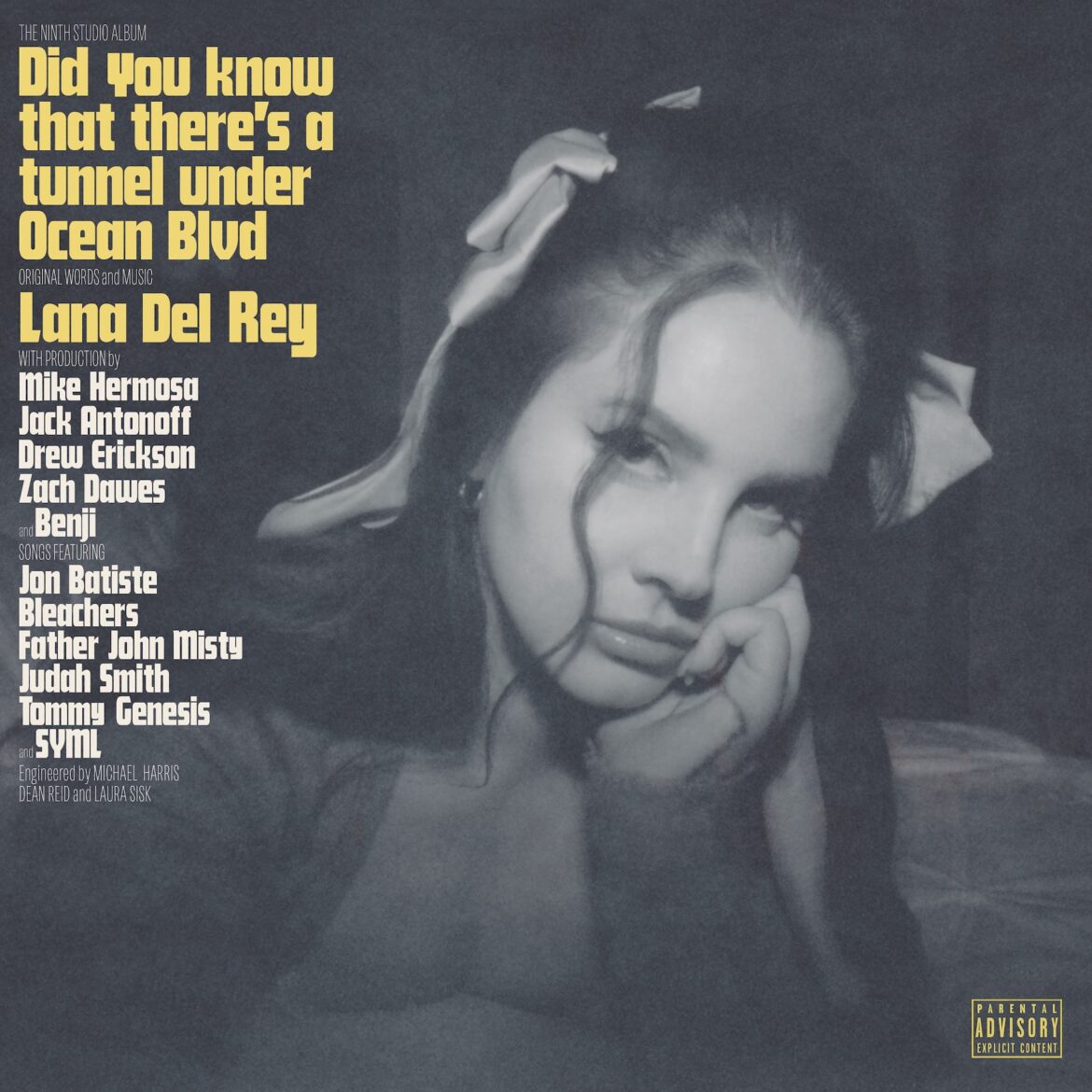
 © courtesy of Interscope Records
© courtesy of Interscope Records